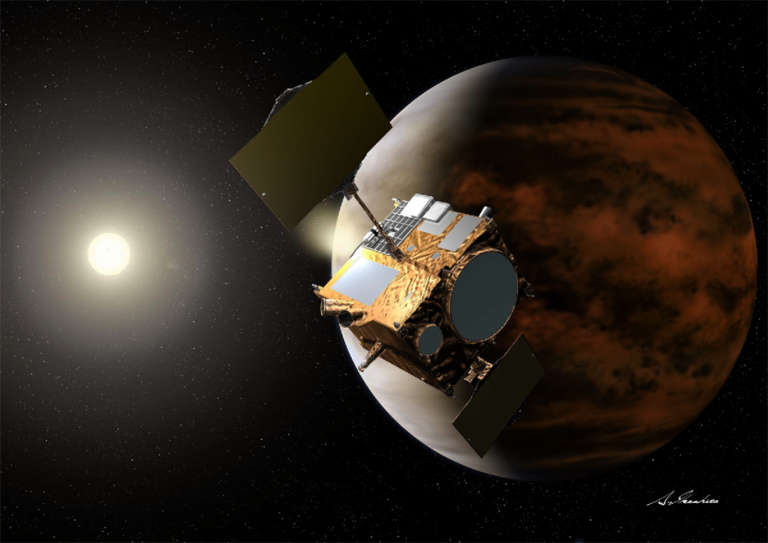Emily Lakdawalla • Oct 23, 2009
Send your name to Venus with Venus Climate Orbiter (PLANET-C), now known as Akatsuki
The Japanese space agency's science missions have an abundance of names. They start out with a programmatic name, like MUSES-A, PLANET-A, etc. -- which might be like calling NEAR "Discovery-A" and Mars Pathfinder "Discovery-B" and so on. Some, but not all, of the Japanese missions get a descriptive name, like the Selenological and Engineering Explorer (SELENE) or Venus Climate Orbiter. Then, right after they launch, they're given what is usually translated as a "nickname," often chosen from mythology. I like using the nicknames because they are short and evocative, but since they come so late the nicknames don't usually catch on.
This time around, they've decided to do things differently, assigning the nickname long before launch. PLANET-C, also known as Venus Climate Orbiter, has been given the name Akatsuki, meaning "dawn" or "daybreak." In their statement this morning, JAXA said, "By publishing the nickname well in advance of its launch, we intend to make people more familiar with the satellite and its launch preparations, actual launch, and on-orbit operations." They said that the mission team chose the name because it "indicates the start of a day, impl[ying] not only a beautiful scenic image, but also the power of achieving a goal, thus the name carries the thoughts and determination toward the success of the mission."
At the same time, they also announced an opportunity to send your name and a very short message (40 Roman characters or 20 kanji) via the Internet; large groups of people (such as schoolkids) can put together a single page of written material, or a drawing, and submit it by mail. All names and images will be etched on aluminum plates bolted to the side of Akatsuki.
Akatsuki is expected to launch next summer and arrive at Venus in December. Its science goals are similar to those of Venus Express -- to study the behavior of the atmosphere. It carries near-infrared cameras, ultraviolet instruments, and will perform radio science.


 Explore Worlds
Explore Worlds Find Life
Find Life Defend Earth
Defend Earth


